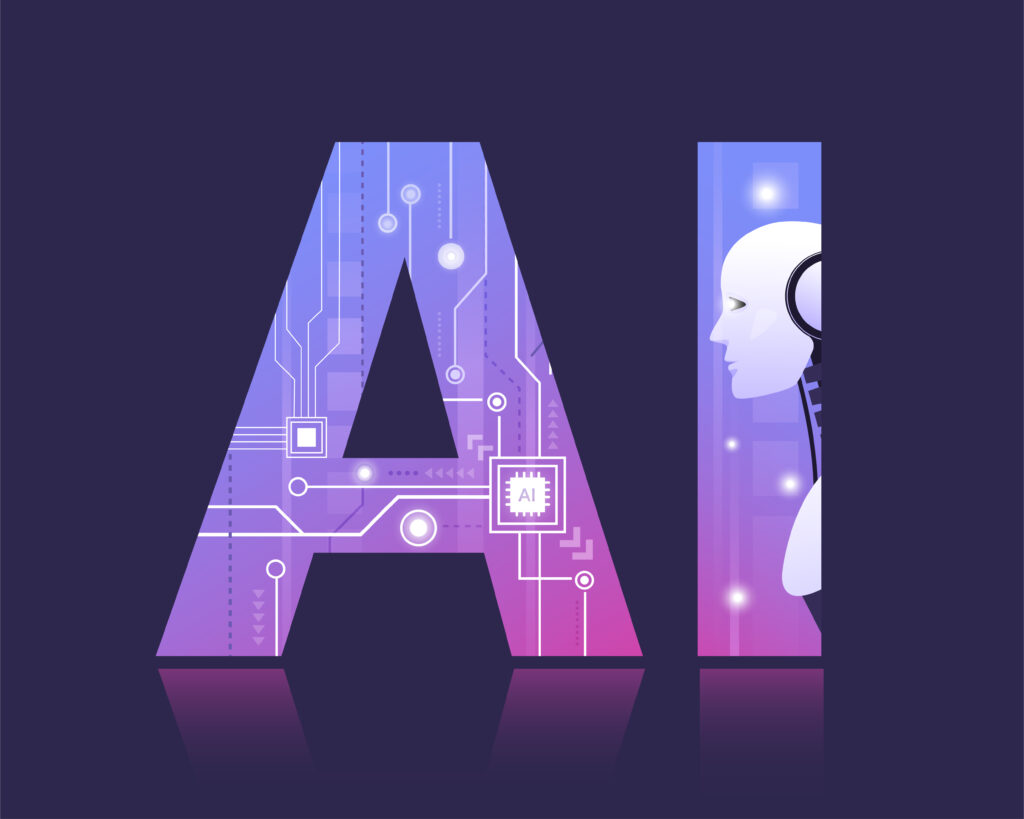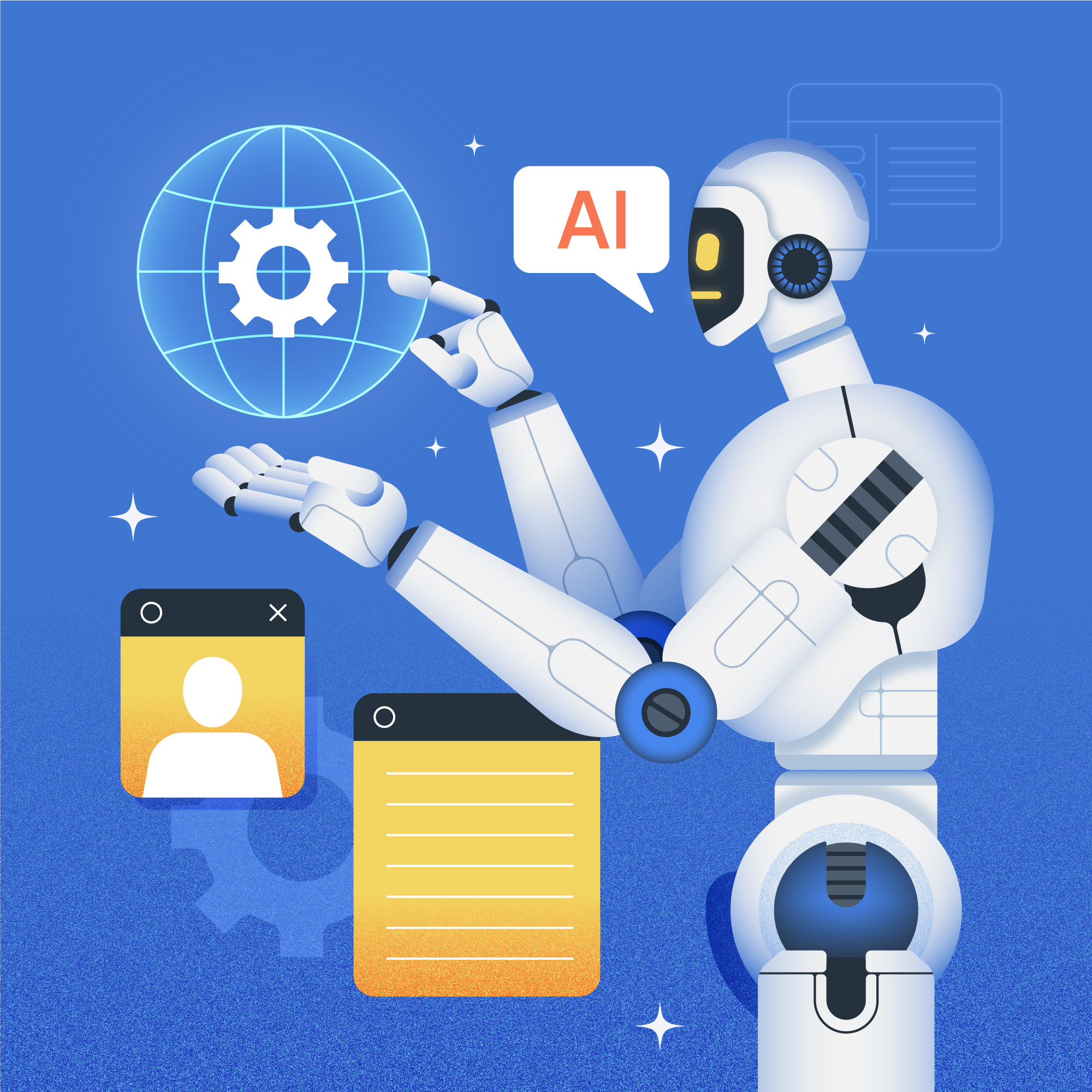Artificial intelligence (AI) is no longer just a buzzword; it’s a driving force behind the evolution of various industries, including content marketing. As the demand for personalized, data-driven content increases, AI is transforming how marketers create, optimize, and distribute content. In this blog, we’ll explore five key reasons why AI is revolutionizing content marketing and how businesses can leverage this technology to stay ahead of the curve.

1. AI Enhances Content Personalization
In today’s digital world, customers expect personalized experiences. AI allows marketers to deliver highly targeted content tailored to individual preferences, making content more relevant and engaging.
How AI Personalizes Content:
- Data-driven Insights: AI analyzes vast amounts of user data—browsing behavior, past interactions, and preferences—to generate personalized content recommendations.
- Dynamic Content Delivery: AI-powered algorithms can dynamically adjust the content shown to users based on real-time actions, ensuring the most relevant content is always presented.
- Segmentation and Targeting: AI tools like HubSpot’s Smart Content and Optimizely help marketers segment their audience and target them with personalized content, improving user experience and increasing conversions.
SEO Tip:
Personalized content tends to rank higher on search engines because it’s more likely to meet the user’s intent, which reduces bounce rates and increases dwell time.
2. AI Streamlines Content Creation and Optimization
Content creation can be time-consuming, but AI-powered tools are changing the game by automating various stages of the content creation process. From generating ideas to optimizing articles for SEO, AI is helping marketers work faster and smarter.
How AI Improves Content Creation:
- AI Writing Tools: Platforms like Jasper AI, Writesonic, and Copy.ai assist with drafting blog posts, social media updates, and even email campaigns, saving time while maintaining quality.
- Content Optimization: Tools like Clearscope and Surfer SEO analyze top-ranking pages for specific keywords and provide recommendations on word count, structure, and keyword usage.
- SEO Automation: AI tools can optimize content for search engines by analyzing ranking factors and ensuring that the content meets SEO best practices, such as proper keyword density, internal linking, and meta descriptions.
SEO Tip:
Use AI tools like RankBrain to understand which content formats and keywords are favored by Google’s algorithms, then tailor your strategy to match.
3. AI Boosts Content Distribution and Amplification
Creating great content is only half the battle—getting it in front of the right audience is the other. AI plays a crucial role in content distribution by automating the process and ensuring that your content reaches the right audience at the right time.
How AI Helps with Distribution:
- Smart Scheduling: AI-powered platforms like Hootsuite and Buffer can automatically schedule and distribute content at optimal times, maximizing reach and engagement.
- Predictive Analytics: AI uses predictive analytics to identify the best distribution channels based on user behavior, ensuring that content is shared where it will have the most impact.
- Content Syndication: AI tools like Outbrain and Taboola can automate content syndication, placing your articles and blog posts in front of new audiences on trusted third-party sites.
SEO Tip:
AI-powered distribution helps increase your content’s visibility, which can lead to more backlinks and improved SEO rankings.
4. AI Enables Better Audience Insights and Content Performance Tracking
Understanding your audience and measuring content performance are critical components of a successful content marketing strategy. AI excels at providing deep insights into user behavior and offering real-time performance tracking, allowing marketers to adjust their content strategies on the fly.
How AI Enhances Insights and Analytics:
- Advanced Analytics: Tools like Google Analytics 4 (GA4) and IBM Watson use AI to track user behavior and content interactions in real-time, offering actionable insights into which content performs best.
- Predictive Content Suggestions: AI can predict what types of content your audience will engage with next, enabling marketers to stay ahead of trends and deliver what users want before they ask for it.
- Real-time Adjustments: AI-powered dashboards give marketers the ability to monitor content performance in real-time, allowing them to tweak their strategy for maximum engagement and SEO success.
SEO Tip:
Use AI tools to track engagement metrics like click-through rates, bounce rates, and dwell time, then optimize content based on what drives the most traffic and conversions.
5. AI Improves Customer Engagement through Chatbots and Conversational AI
AI-driven chatbots and conversational AI are transforming how businesses engage with customers. By providing instant, personalized responses, chatbots can enhance the user experience and guide visitors through the buyer journey more efficiently.
How AI Elevates Customer Engagement:
- 24/7 Support: AI-powered chatbots like Drift and Intercom provide round-the-clock customer support, answering questions, and guiding users to relevant content.
- Conversational AI: Advanced AI assistants can hold natural conversations with users, offering personalized recommendations and content suggestions based on user inquiries.
- Lead Generation: Chatbots can capture leads by engaging visitors in real-time, qualifying them, and directing them to specific pieces of content based on their needs.
SEO Tip:
Integrating conversational AI on your website can increase user retention, reduce bounce rates, and improve your overall site ranking.
Conclusion
AI is reshaping content marketing by enabling more personalized, efficient, and data-driven strategies. From improving content creation and distribution to enhancing customer engagement, AI is transforming every stage of the content marketing funnel. Businesses that leverage AI technology will be well-positioned to outpace competitors and drive long-term growth.
As AI continues to evolve, the future of content marketing looks more innovative, personalized, and efficient than ever before.


